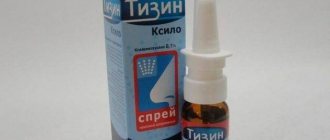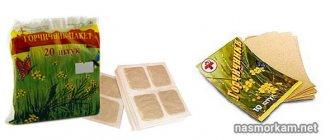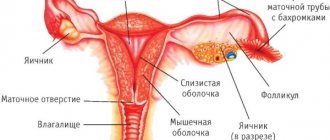Traditional medicine has always been popular, especially among women during pregnancy. It's no secret that getting sick or catching a cold in an interesting situation is a real disaster, because almost all medications are contraindicated.
You need to carefully monitor yourself, avoid drafts, dress warmly, and avoid communicating with sick people. A cold is far from the most pleasant condition, especially during pregnancy, it can have adverse effects on the fetus.
In such a situation, you remember your grandmother’s herbal teas, jars, mustard plasters. But do not forget that you are primarily responsible for the child. Before using traditional medicine, be sure to consult your doctor, especially in the second trimester of pregnancy.
All types of heating during pregnancy are prohibited. Since in the second semester there is a risk of not only premature birth, but also miscarriage. For this reason, it is better to prescribe treatment from a doctor.
In the fall, during times of stress and vitamin deficiency, a person’s immunity weakens, so it is so important to strengthen it. The drug is completely natural and allows you to recover from colds in a short time.
It has expectorant and bactericidal properties. Strengthens the protective functions of the immune system, perfect as a prophylactic. I recommend.
Mustard plasters are one of the most popular folk remedies. When heated, mustard powder releases active substances, which include essential oil. It causes nerve receptors to irritate, dilate blood vessels, warming up deep tissues.
The release of adrenaline and sympathin into the blood increases , which forces the body to resist viruses. This is the whole point. This folk remedy helps overcome colds, coughs, bronchitis and other diseases of the upper respiratory tract.
Before use, be sure to check the quality of the product. The sheets of paper must be strong; it’s bad if the powder crumbles. Mustard plasters should not smell sour or musty. When wet, the bags should smell like volatile mustard oil.
- Packages should be applied to the chest, back, lower back, bronchi, legs, throat, and neck. They are often used to treat coughs or colds.
- Mustard plasters are soaked in warm water and applied to the chest or back, without touching the heart area. Next you should wrap yourself warmly.
- After the skin has reddened and warmed up sufficiently, the bags are removed and the skin is washed. It would be a good idea to moisturize your skin with cream.
- Next, put on warm clothes and cover yourself with a blanket. Warming up lasts from three to twenty minutes. It all depends on the age category of the patient and his sensitivity.
The duration of treatment procedures should not exceed four days. Store in a room where air humidity is high, otherwise the composition of the powder may change.
Immunity is a natural reaction that protects our body from bacteria, viruses, etc. To improve tone, it is better to use natural adaptogens.
It is very important to support and strengthen the body not only with the absence of stress, good sleep, nutrition and vitamins, but also with the help of natural herbal remedies.
In such cases, our readers recommend using the newest product - Immunity to strengthen the immune system..
It has the following properties:
- Kills viruses and eliminates secondary signs of influenza and ARVI in 2 days
- 24 hours of immune protection during infectious periods and epidemics
- Kills putrefactive bacteria in the gastrointestinal tract
- The composition of the drug includes 18 herbs and 6 vitamins, plant extracts and concentrates
- Removes toxins from the body, reducing the recovery period after illness
Under what conditions can mustard plasters be used by pregnant women in the 2nd trimester?
After conception, immune protection decreases sharply, so pregnant women are easily susceptible to colds. All this can negatively affect the development of the fetus and lead to complications.
The use of mustard packets leads to an outflow of blood from the uterus, insufficient supply of nutrients and oxygen to the fetus. And there is little good in this either, but each organism has its own individuality.
Of course, it is necessary to treat a cold, but this should only be done by a specialist.
You should not self-medicate, besides, many doctors are against such a method as mustard plasters. Stories from our readers!
“After pneumonia, I drink to maintain immunity. Especially in the autumn-winter periods, during epidemics of influenza and colds.
The drops are completely natural and not only made from herbs, but also with propolis and badger fat, which have long been known as good folk remedies. It performs its main function perfectly, I recommend it.”
Folk alternative
During the period of bearing a baby, the female body becomes especially vulnerable. Colds, inflammation of the respiratory tract and other ailments occur in expectant mothers more often than before. The reason lies in the weakening of the immune system, which is a natural phenomenon during such a crucial period. Treatment is necessary and preferably without pharmacological agents that can affect the baby. But mustard plasters are also not the best option for expectant mothers. Traditional medicine can offer a lot of alternatives to mustard leaves. Before using any method, you need to make sure that it will not harm mommy and baby.
Among the alternatives to mustard plasters, the following are considered the most common and safe:
- Essential oils. Eucalyptus, pine, and fir oils are good in fighting colds. They are used for inhalation or added to an aroma lamp to relieve symptoms. After the procedure it becomes easier to breathe. Coniferous oils are also effective in the treatment of bronchitis.
- Inhalations with herbal compositions. The procedure will help get rid of cough and stop inflammation in the sinuses and bronchi. Chamomile, calendula, St. John's wort, thyme, and sage are best suited for inhalation. The steam should not be too hot, otherwise it is easy to get burned.
- Milk + honey Such simple ingredients will help soften your throat, relieve cough and chest discomfort. The milk should be warm. But the “medicine” cannot be overheated: honey will lose its beneficial properties. A substitute for bee products is pharmaceutical cocoa butter. It also has a pronounced softening effect.
- Teas. Everyone probably knows: drinking plenty of fluids is the best way to relieve cold symptoms. The tea should be warm, not hot, so as not to irritate the throat. A drink with the addition of raspberries, linden blossoms, and lemon is considered optimal. “Supplements” work to strengthen immune functions.
- Rinse with baking soda. Gargling with soda helps relieve sore throat. For a glass of warm, pre-boiled water, you need to take a teaspoon of edible sodium carbonate.
Indications for the use of mustard plasters during pregnancy
- Bronchitis
- Dry and wet cough
- Runny nose
- Bronchopneumonia
The main cause of bronchitis accompanied by sputum is a viral infection. The disease occurs due to damage by bacteria, and in some cases, when the body is exposed to allergens.
Now you can safely purchase excellent natural drugs that alleviate the symptoms of the disease, and in up to a few weeks allow you to completely get rid of the disease.
Precautionary measures
When purchasing mustard , it is important that it is fresh and of high quality.
. Before purchasing, you must carefully study the composition of mustard to make sure that it is made exclusively from natural ingredients.
If mustard is prepared at home, then when buying mustard powder
It is also necessary to pay attention to the date of manufacture, composition, as well as the quality of packaging.
only be consumed in small quantities during pregnancy.
, paying attention to your well-being.
In the event that, after consuming mustard, any disturbances in the stomach were noticed, problems with stool appeared, abdominal pain, shortness of breath, weakness or other abnormalities occurred, it is necessary to completely stop using it.
Thus, mustard during pregnancy
can have a positive impact on both the expectant mother and her baby.
It can only be used internally and in small quantities.
, external use is strictly not recommended.
Ketchup, mayonnaise and mustard are favorite foods on a pregnant woman's menu. Let's see if pregnant women can have mustard, ketchup and mayonnaise, because they are loved by thousands of housewives. It seems that these products are irreplaceable, so often we find them in recipes for salads and meat dishes.
Mayonnaise
Let's start with the fact that homemade mayonnaise
immediately finds itself under
strict prohibition
. It contains eggs that are not thermally processed, which means they can be contaminated with salmonella. These bacteria cause severe intoxication - salmonellosis, which can lead to dehydration due to prolonged diarrhea and vomiting. In rare cases, salmonella causes the development of meningitis and reactive arthritis. In addition, bacteria can penetrate the placental barrier, affecting the baby’s body.
Store-bought mayonnaise
undergoes heat treatment, so there is no risk of salmonellosis. But its composition often leaves much to be desired: vegetable fats, thickeners and other chemical additives, which, unfortunately, manufacturers do not always disclose on the packaging. Mayonnaise is also a high-calorie product that loads the liver and pancreas with a high fat content. So pregnant women should not mindlessly eat mayonnaise in any case. But once a month for a holiday, you can afford it as a dressing for any dish.
Ketchup
We will consider high quality ketchup that does not contain a long list of harmful food additives. If the expectant mother does not have the spices included in its composition, then sometimes you can use
it's like sauce.
People suffering from digestive diseases are advised to abstain. If you experience stomach pain during pregnancy, even a small amount of ketchup can aggravate the symptoms.
Mustard
Mustard is a product that can cause. If a pregnant woman does not have any reaction to it, then this spice can be used in moderation. Mustard contains a large amount of vitamins and is a natural antibiotic - a good measure for preventing colds. The main thing is not to overdo it, because if consumed excessively, it increases appetite by stimulating the production of gastric juice. In turn, this can aggravate or.
The rule that you need to know moderation in everything is the fairest postulate that pregnant women should adhere to. Pay attention to the composition, the reaction of the body, do not eat sauces and spices with tablespoons - and then your favorite foods will not turn into a toxic mixture for your health.
Contraindications to the use of mustard plasters during pregnancy
- Cough accompanied by acute respiratory infection
- Neurodermatitis
- Presence of malignant and benign tumors
- Presence of skin diseases (dermatitis, eczema, psoriasis)
- Tuberculosis
- Bronchial asthma
- High body temperature
- High blood pressure
- Individual intolerance and sensitivity
Mustard powder leads to dilation of blood vessels, due to which blood quickly flows to the area where the mustard packets are applied. This is how warming occurs.
First of all, this negatively affects the condition of the fetus, since the blood gives more oxygen and nutrients to the place where the mustard plaster is applied. And, as a result, the fruit does not receive enough of this.
Do not also forget that any warming during pregnancy is strictly prohibited. In addition, after using mustard packets, blood pressure increases due to vasoconstriction
Let's find out: is it possible for pregnant women to soak their feet in mustard?
The question posed should be answered immediately. No! Pregnant women should never soak their feet in mustard; this action is unacceptable. Moreover, you should not use mustard that is applied to the leaves.
Several centuries ago, when abortions were not possible, women used this procedure to stop unwanted pregnancies.
But why, in this case, does the question so often arise: is it possible to warm the feet of pregnant women? This matter must be approached with extreme caution.
If you just want to warm your feet, then you can. But only to warm, and not to steam, so the water temperature cannot exceed 40 degrees. And you can warm your feet by simply wearing warm, cozy socks.
All actions must occur in moderation. Do not experiment; pregnancy is unlikely to allow you to do this. As for baths with mustard, they are dangerous for your health and the health of your unborn baby.
Why mustard plasters should not be placed during pregnancy: contraindications
Mustard plasters produce an irritating warming effect. As a result, blood vessels dilate, and blood from other parts of the body (including the uterus) begins to actively flow to the area where the mustard plaster is placed, as a result of which warming is achieved. But, firstly, the fetus suffers, because blood carries oxygen and nutrients, and if it goes elsewhere, the child experiences a deficiency in them. Secondly, any warming procedures during pregnancy are strictly prohibited, especially in the pelvic area.
In addition, placing mustard plasters leads to an increase in a woman’s blood pressure, which carries certain risks. Therefore, most doctors unanimously agree that such therapy cannot be considered safe for the expectant mother.
Please note that essential oils are potent substances that often cause allergic and other intolerance reactions in pregnant women. You need to carefully read the information on the packaging: mustard plasters are produced both classic and with eucalyptus, and in the latter case the risk of side effects increases even more.
It should be noted that such treatment cannot be used for a long time to avoid the formation of burns, irritations, and skin rashes. If the skin where mustard plasters are supposed to be placed has any damage or the skin is very sensitive, then mustard plasters should not be placed during pregnancy either.
This treatment is contraindicated at elevated body temperature and high blood pressure.
In general, now you know why mustard plasters are dangerous during pregnancy, and you can draw the right conclusions. By the way, mustard is a popularly known abortifacient, which has long been used to terminate an unwanted pregnancy in the early stages. The use of mustard plasters in the first trimester can result in a miscarriage, and in the later stages - in premature birth.
Based on materials from nashidetki.net
Can pregnant women have mustard and how beneficial is it?
Mustard contains approximately 35% fatty oils, as well as essential oil. Thanks to its composition, mustard can increase appetite and improve the digestive process. In addition to these positive qualities, mustard can have a mild laxative effect and be used as an antioxidant.
As it turned out, mustard can eliminate toxins that appear during toxicosis, but its excessive consumption can harm the gastric mucosa.
Considering that mustard has a lot of beneficial properties, we can say that it will be useful for pregnant women, because it will be taken orally. But be careful, as spicy seasonings contribute to another unpleasant situation in pregnant women - heartburn.
Pregnant women with heart disease, hypertension, or flatulence should also not consume mustard.











